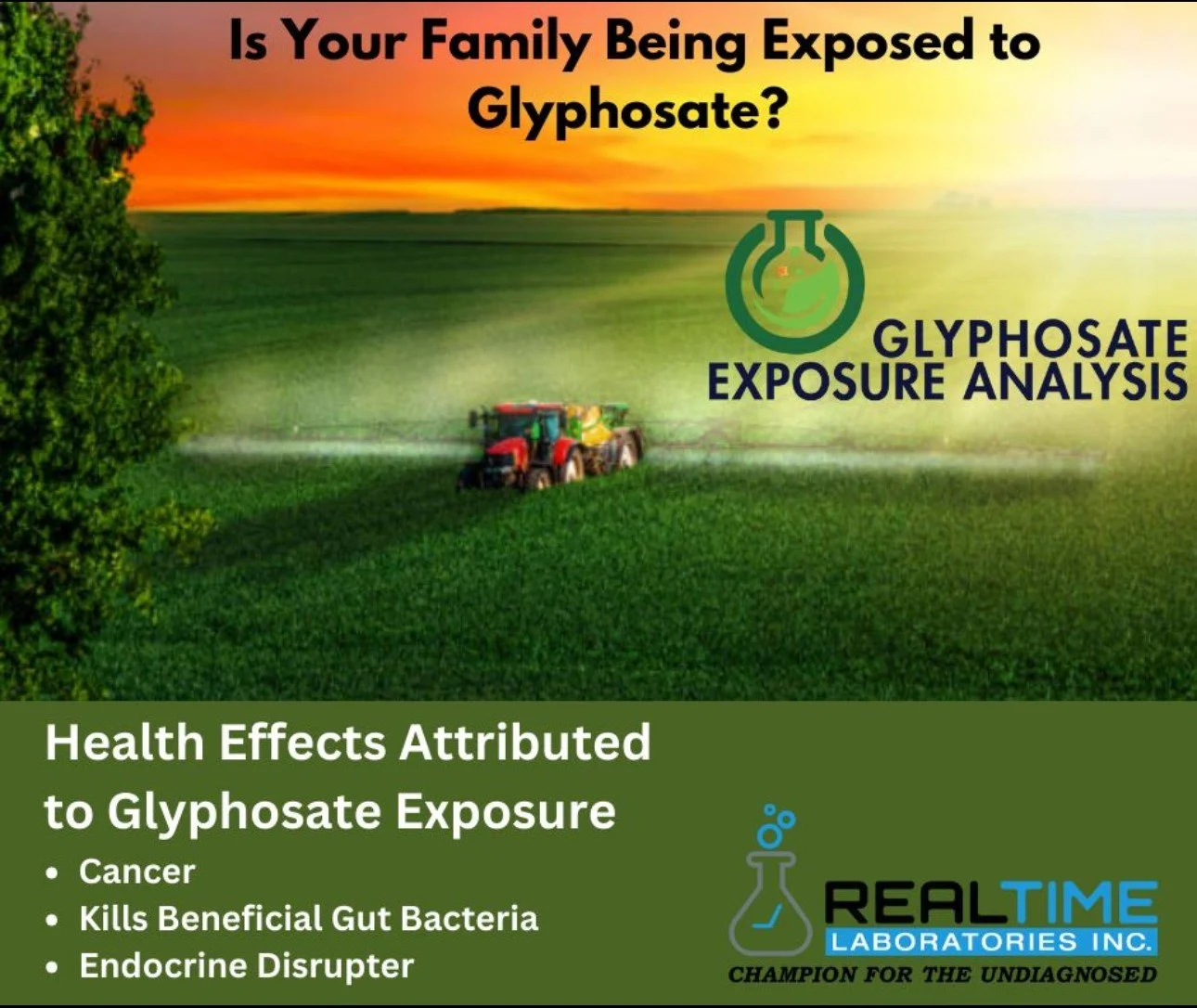The Glyphosate Herbicide Debate
The politics and the uncertain future of the World's most widely used herbicide
Many have seen news reports from Reuters and others the news that Bayer, the maker of Roundup weedkiller, has to pay approximately $3.5 million to a Pennsylvania woman after a jury found that the product caused her cancer. This is the 5th such settlement.
Glyphosate is the main active ingredient for many broad-spectrum herbicides such as Round Up that may be causing health issues for you and your family and you may not even know. The increased use of Glyphosate in agriculture and home gardens has made it difficult to avoid using products that contain it.
Have you been exposed to Glyphosate?
RealTime Labs is here for you. Find out more about our Glyphosate Exposure Analysis test to see if you could benefit from the knowledge that you or your patients are safe from the negative effects of glyphosate and its by-product aminomethylphosphoic acid (AMPA).
Understanding more about Glyphosate
Glyphosate, the world's most widely used herbicide, has become a highly politicized issue, with passionate arguments from both sides of the debate. In 2015, the International Agency for Research on Cancer (IARC), a part of the World Health Organization (WHO), classified glyphosate as a "probable human carcinogen"¹. This classification was based on studies that showed a link between glyphosate exposure and cancer in animals. However, other studies have found no such link, and many scientists and regulatory agencies worldwide consider glyphosate safe when used as directed.
Glyphosate has become a highly politicized issue.
Despite the conflicting evidence, glyphosate has become a highly politicized issue, with environmental and consumer groups advocating for its ban. These groups argue that glyphosate poses a significant risk to human health and the environment, and they believe that safer alternatives are available. On the other hand, many farmers and agribusinesses argue that glyphosate is a vital tool for weed control, and banning it would have serious economic consequences.
The debate over glyphosate has also become entangled with broader political issues. Some environmental groups argue that the use of glyphosate is part of a larger problem of corporate control over agriculture. They claim that glyphosate is just one example of how large agribusinesses harm the environment and public health. Others argue that the debate over glyphosate is part of a larger culture war between rural and urban America. Rural Americans support the use of glyphosate to protect their livelihoods, while urban Americans are more concerned about potential health and environmental risks.
The future of glyphosate is uncertain.
In recent years, some countries and local governments have banned or restricted its use, while others continue to allow it. In the United States, the Environmental Protection Agency (EPA) has maintained its approval of glyphosate, despite pressure from environmental groups to ban it. However, the debate over glyphosate is likely to persist as more studies are conducted and more evidence is gathered regarding its potential risks and benefits.
All in all, the debate over glyphosate is a complex and highly politicized issue, involving various groups and interests. While some argue that glyphosate poses significant risks to human health and the environment, others believe it is an essential tool for weed control with severe economic consequences if banned. As the debate continues, it is crucial to consider all available evidence and make decisions based on the best scientific knowledge.
A Comprehensive Glyphosate Exposure Analysis
For readers who are interested in understanding their personal exposure to glyphosate, a resource is available. Real-Time Lab offers a comprehensive glyphosate exposure analysis. This service not only provides a detailed test for glyphosate presence in your urine but also includes a medical consultation to interpret the results. Understanding your level of exposure to glyphosate could be crucial, both from a health perspective and for potential legal considerations. This knowledge empowers you to take informed steps toward safeguarding your health and legal rights.








